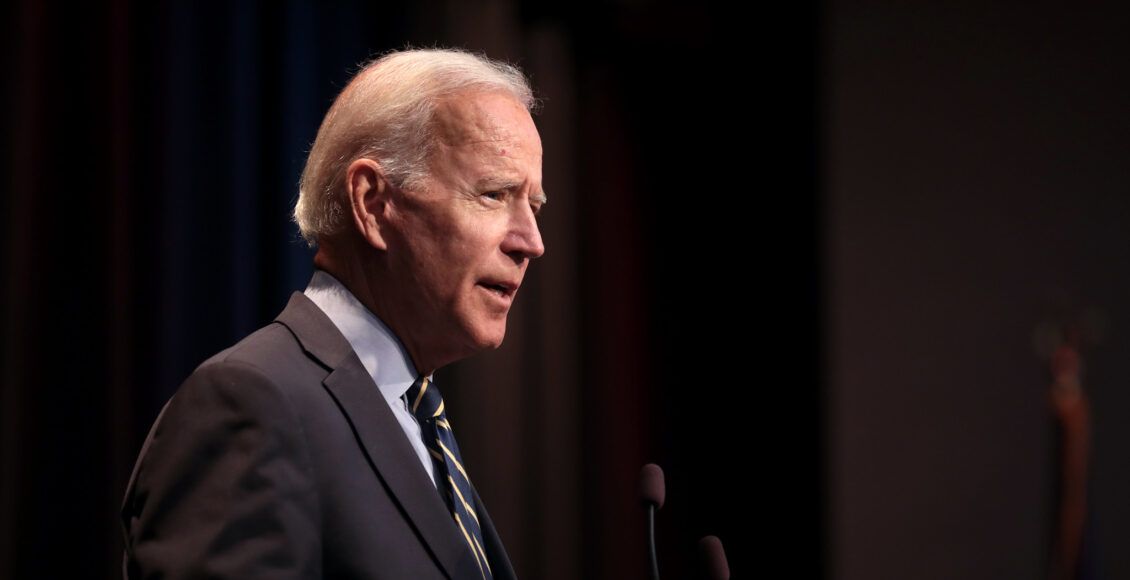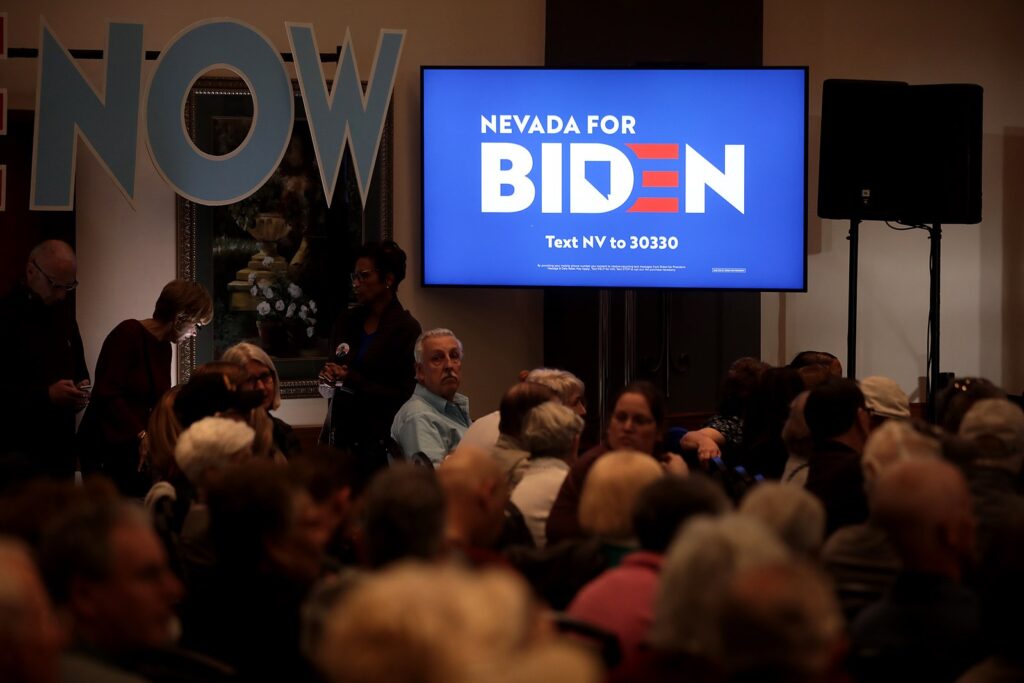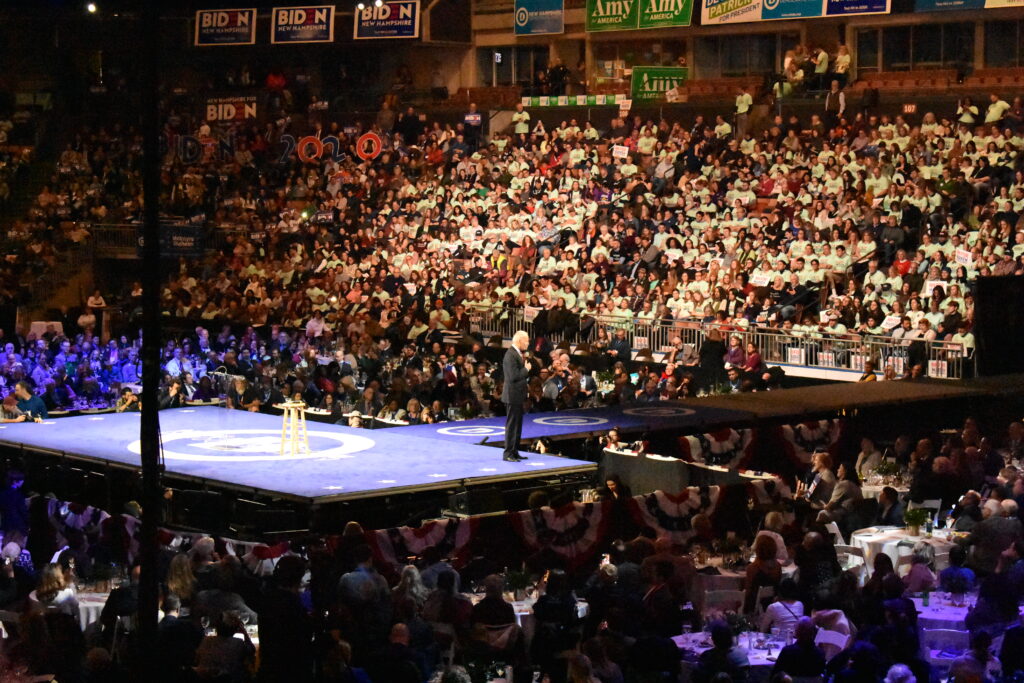Biden’s Basement Campaign

American presidential campaigns have historically captured the attention of millions of people around the world, with expensive advertisements, passionate debates, and immense rallies flooding the airwaves for years at a time. However, the 2020 election has been turned upside down ever since the COVID-19 pandemic began sweeping through the country in March. Three months after the United States began to enter lockdown, campaigns for the November presidential election are beginning to ramp up again. On June 20, Donald Trump tried to reinvigorate his campaign by speaking to an underwhelming crowd of supporters at an indoor Oklahoma rally, an event which ignored all social distancing precautions. Meanwhile, his Democratic rival, Joe Biden, is continuing to mount an entirely different campaign — from his Delaware basement.
Since mid-March, Biden has conducted nearly all campaign events by video-conference from his basement. Despite his lack of media visibility relative to President Trump, Biden’s polling numbers have surged as voters are disheartened by Trump’s responses to the pandemic and recent anti-racism protests. With his widening lead in recent polls, Biden’s campaign will have to decide whether or not to continue laying low over the summer, hoping that Donald Trump will hurt his re-election chances in the coming months while avoiding Biden’s own infamous gaffes. A decision to maintain Biden’s low public visibility would also suggest that campaigns may not be as important in ensuring electoral success as they are made out to be.
The Case for the basement campaign
If Joe Biden’s sole goal is to secure a victory on election night, then staying out of the spotlight as much as possible might be a good bet. Biden has little need to show himself off to the American public due to his past political experience and significant name recognition. Moreover, as an “establishment” candidate, Biden is prone to attacks by figures from both the right and left ends of the political spectrum. By staying away from the public eye, Biden can minimize the ability of pundits and voters to attack him relentlessly. Most notably, he has been able to largely avoid his tendency to make verbal gaffes during interviews and speeches. Recent examples include saying that Black voters who are undecided on whether to vote for Biden or Trump “ain’t black” and calling a voter a “damn liar” at a town hall event in Iowa. Aware of this pattern, rival campaigns have tried to draw Biden into the spotlight, hoping that he will say something regrettable on camera. Bernie Sanders’ campaign staff hoped that Biden would wilt under pressure during the last primary debate, and the Trump campaign is now trying to add an unprecedented fourth debate to the schedule. The pandemic offers Biden an opportunity to avoid these potentially risky moments in the spotlight.

Throughout his “basement campaign,” Biden has also been able to deflect a series of controversies and current events that could negatively impact his chances of winning the election. A sexual assault allegation from former Senate staffer Tara Reade against him has been drowned out by the media’s overwhelming focus on the pandemic. As a result, the accusation has been largely ignored by the Biden campaign. Moreover, Biden’s historic support of strong policing, including the “1994 Biden Crime Bill” that is partially responsible for a surge of mass incarceration throughout the U.S., has also flown under the radar amid the anti-racism and police reform protests that have swept the nation. By minimizing his public visibility, Biden has created a low-risk campaign with limited possibilities for mistakes and scandals. In contrast, Trump has consistently been embroiled in controversy, which has led to a decrease in his popularity in recent months.
The Case against the basement campaign
Although Biden’s current campaign strategy minimizes his exposure to controversy, it also presents a whole new set of problems. If Biden continues to stay hidden from the public eye, voting decisions for Democrats will almost entirely be motivated by an anti-Trump sentiment, rather than by a pro-Biden movement. As a result, the fate of the election will very much lie in Trump’s hands. Concretely, this means that Democrats will place their trust in recent favourable polling and hope that Trump will hurt his own electoral hopes. A similar strategy was used by Hillary Clinton’s campaign in 2016, to disastrous effect. Indeed, Clinton ran a campaign largely focused on keeping Trump out of office. In doing so, her campaign misallocated resources and became overly confident about polling numbers in key swing states. By election night, she held a significant lead in most major polls but shockingly lost to Trump in the final electoral college count. Following 2016, Democrats ought to be weary of running a similar campaign, once again underestimating Trump.
Moreover, presidential runs typically rely on aggressive campaigning in order to inspire a broad political movement that drives voter turnout. Barack Obama’s famous “Yes We Can” inspired a new generation of Democrats. Trump’s calls to “Make America Great Again” won him the White House. Even Bernie Sanders’ spirited campaigns for democratic socialism can be seen as a partial success for energizing a new wing of the Democratic party. Meanwhile, Biden’s calls to “Restore the Soul of America” have gone largely unnoticed as he campaigns from home. By running a minimalist campaign, he will struggle to inspire a political movement. Voters ― even within the Democratic party ― may not be keen to turn out in large numbers for Biden in November following an unenthusiastic campaign. In an interview with the New York Times, a left-wing American student said that she would find it hard to vote for Biden because he “doesn’t have any real attractive attributes and [his] main message seems to be: ‘I won’t change anything to help progressive causes, really, but at least I’m not Trump.’”

In order to win the general election, Biden requires the support of the vast majority of the Democratic party, including those on the far-left who would typically support candidates like Bernie Sanders and Elizabeth Warren. To inspire such a broad political coalition, Biden will most likely have to accept the risks of emerging into the spotlight and mount a full-scale campaign to address concerns from the far-left about his moderate approach to politics.
The Futility of Campaigning?
If Joe Biden manages to defeat Donald Trump in November after running a minimalist campaign, many will question the relevance of campaigns in the electoral process. There exists an emerging school of thought which argues that certain variables such as incumbent approval ratings and economic conditions, rather than campaign advertising, are the most important factors in a voter’s decision. A study of the 2016 election found that campaigns “persuaded about 1 in 800 voters, [or] substantively zero.” Yet, that same year congressional and presidential campaigns spent a total of $6.5 billion, much of which came from the pockets of small-dollar donors. Nevertheless, there is evidence that although campaigns may not be effective in persuading voters to support a candidate, they may be important in inspiring the average citizen to actually vote on election day. The same study found that canvassing led to a sizeable 2.5% increase in voter turnout in the regions that were studied. This research suggests that campaigns should focus more resources on energizing pre-existing supporters rather than trying to persuade new supporters to join them.
The 2020 election is atypical at best. There is no tried-and-tested strategy for managing a presidential campaign during a pandemic, and any conclusions drawn from this election about the effectiveness of campaigning must be taken with a grain of salt. Whether Joe Biden decides to emerge into the spotlight or to continue an unprecedented campaign from his basement remains to be seen. Either way, the coming months will serve as an important experiment in the art of campaigning, or, perhaps, the lack thereof.
Featured image: “Joe Biden” by Gage Skidmore is licensed under CC BY-SA 2.0
Edited by Justine Coutu
